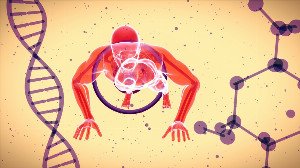Teti Desyani, Bagas Mahendra Putra, Al Haura, La Juanda, Vivi Ainun, Perani Rosyani
Journal of Lupus Disease Classification Study Using Naïve Bayes Method
Introduction
Journal of lupus disease classification study using naïve bayes method. Accurate classification of Systemic Lupus Erythematosus (SLE) using the Naïve Bayes method. This research develops a model for early diagnosis and management with clinical and laboratory data.
Abstract
The chronic autoimmune illness known as systemic lupus erythematosus (SLE) is typified by tissue destruction in multiple organs and systemic inflammation. Diagnosing this condition might be difficult because of its varied and fluctuating clinical symptoms. The goal of this research is to use clinical and laboratory data to create a classification model for SLE diagnosis using the Naïve Bayes approach. Age, gender, clinical symptoms, and the outcomes of laboratory tests are among the information gathered for this study. This approach is crucial for helping with SLE management and early diagnosis. The Naïve Bayes model was used to assess and categorize these data according to the severity of the condition. The accuracy, precision, and recall measures were used in the study to evaluate the Naïve Bayes model. The outcomes demonstrated how well the Naïve Bayes algorithm can categorize SLE patients.
Review
This paper presents an initial exploration into applying the Naïve Bayes method for the classification of Systemic Lupus Erythematosus (SLE), a complex autoimmune disease notorious for its diagnostic challenges. The stated objective, to develop a classification model using clinical and laboratory data, addresses a critical need in medical practice, as improved diagnostic tools can significantly impact early intervention and patient management. The selection of Naïve Bayes, a computationally efficient and often effective algorithm, provides a foundational approach to this pertinent problem, aiming to streamline the diagnostic process for a condition with highly varied manifestations. While the abstract outlines a promising direction, several methodological details require further elaboration to fully assess the study's rigor and contribution. Specifically, there is an ambiguity regarding the precise classification task: the abstract mentions creating a model for "SLE diagnosis" but later states the data was classified "according to the severity of the condition." Clarifying whether the model performs binary classification (SLE vs. non-SLE) or multi-class classification (different severity levels) is crucial. Furthermore, the abstract lacks specifics on the dataset size, its origin (e.g., retrospective cohort, multi-center), and the exact clinical symptoms and laboratory tests included, which are vital for evaluating the generalizability and robustness of the model. Details on data preprocessing, such as handling missing values or feature selection, are also absent. In conclusion, this study represents a valuable initial step towards leveraging machine learning for SLE diagnosis. To enhance its impact and readiness for publication, a revised manuscript should provide a clearer definition of the classification target, comprehensive details regarding the dataset (including its size, source, and diagnostic criteria for ground truth), and a more explicit description of the specific clinical and laboratory features utilized. Quantifying the reported "accuracy, precision, and recall measures" with actual values and comparing them against a baseline or existing clinical standard would also significantly strengthen the findings and provide a more robust assessment of the Naïve Bayes model's efficacy in this challenging diagnostic domain.
Full Text
You need to be logged in to view the full text and Download file of this article - Journal of Lupus Disease Classification Study Using Naïve Bayes Method from Formosa Journal of Science and Technology .
Login to View Full Text And DownloadComments
You need to be logged in to post a comment.
Top Blogs by Rating
The Ageless Enigma: What Biolo...
By Sciaria
Life's Grand Algorithm: Is Bio...
By Sciaria
The Silent Language of Your Bo...
By Sciaria
Favorite Blog
Are You Just a Colony? The Int...
By Sciaria
Electro-Pulse: Unveiling the U...
By Sciaria
Electro: The Art of Engineered...
By Sciaria
Related Research
A new legend for coastal geomorphological mapping: the case of southern lazio
Halal branding and trust-building: lessons from nestlé malaysia’s crisis management and community engagement
La dimensione performativa nell’opera di claudio costa
Share
Notice Board
- ISLAMIC MEDIA ALGORITHMS AND HALAL PERCEPTION IN MALAYSIA
- PENINGKATAN KEMAMPUAN KOLABORASI DAN KOMUNIKASI MATEMATIS PESERTA DIDIK KELAS X SMA MELALUI PENERAPAN MODEL COOPERATIVE LEARNING TIPE TGT TERINTEGRASI CASEL
- THE DEVELOPMENT OF 6CS SKILLS THROUGH PROJECT-BASED LEARNING ‘MASYARAKAT BELAJAR SEJARAH’ (HISTORY LEARNING SOCIETY)





